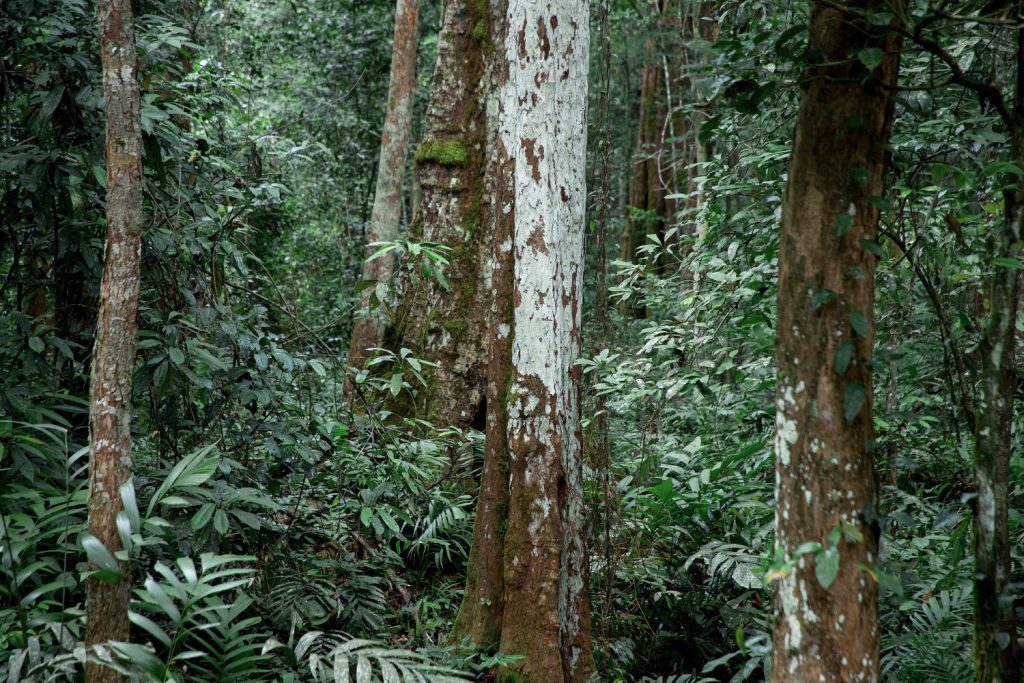
Located on the west coast of Central Africa, Gabon is known for its vast forests and rich biodiversity. The country is home to some of the largest and most diverse forest ecosystems on the continent, including the Congolian rainforest, which is the second-largest in Africa. These forests are home to a wide range of plant and animal species, including many that are found nowhere else on Earth. In recent years, Gabon has made a concerted effort to protect and preserve its forest reserves, recognizing their importance not only for the environment, but also for the country’s economy and society. In this article, we will explore Gabon’s forest reserves and the role they play in the country’s green economy.
How the forest ecosystem expanded in Gabon: Past and the Present
Historically, the forests of Gabon were home to a variety of indigenous communities, who relied on the forests for their livelihoods. The forests provided a range of resources, including food, medicine, and materials for shelter and tools. In addition, the forests were an important source of income for many people, who sold timber, rubber, and other products derived from the forests.
As Gabon’s economy began to modernize and industrialize in the 20th century, the forests became an increasingly important source of revenue for the government. Timber and other forest products became major exports, and the forestry industry became a key contributor to the country’s economy.
Timber, wood and the forestry Industry in Gabon
The forestry industry in Gabon has played a significant role in the country’s economic development, with timber and other forest products serving as major exports for many years. The industry has undergone significant expansion over the years, driven by increasing global demand for these products. In addition to its natural resources, Gabon’s favorable business climate has also played a role in the expansion of the forestry industry.
The country has a stable political environment, a skilled labor force, and a well-developed infrastructure, which have made it an attractive location for investment in the forestry sector. According to data from the World Bank, the forestry industry in Gabon has contributed significantly to the country’s GDP. In 2018, the industry accounted for approximately 7% of Gabon’s GDP, making it one of the country’s top economic sectors. The industry has continued to grow in recent years, with exports of timber and other forest products increasing steadily.
The forestry industry has also played a key role in the creation of jobs and income for people in Gabon. The industry employs a significant number of people, both directly and indirectly, and generates income for many families. In addition, the industry has contributed to the development of infrastructure and other economic activities in the country, further contributing to economic growth.
Gabon’s Forest Riches: How the Country is Leading the Way in Environmental Conservation
The government of Gabon has taken a number of sustainability initiatives to protect its forests and promote sustainable development. Here are a few examples:
- National parks and protected areas: Gabon has established several national parks and other protected areas, covering approximately 10% of the country’s land area. These protected areas are designed to preserve the country’s unique biodiversity and natural habitats, and to support sustainable tourism and other economic activities.
- Sustainable forestry practices: Gabon has implemented a range of policies and regulations to promote sustainable forestry practices, including the Forest Law, which establishes guidelines for the management of the country’s forests. The government has also established the Forest Investment Fund, which provides financial support for sustainable forestry projects and promotes the use of sustainable forest management practices.
- Community engagement: The government of Gabon has worked closely with local communities to involve them in the management and conservation of the country’s forests. This has included the establishment of community forest concessions, which allow communities to manage and benefit from the forests in their areas.
- Partnerships and international cooperation: Gabon has also engaged in partnerships and international cooperation to support its sustainability initiatives. This has included partnerships with organizations such as the World Wildlife Fund and the Rainforest Foundation, as well as participation in international initiatives such as the Congo Basin Forest Partnership.
In conclusion, Gabon’s forest economy has the potential to provide significant opportunities for investors. The country is home to some of the largest and most diverse forest ecosystems on the continent, and the forestry industry has long been an important contributor to the country’s economic development. There are a range of opportunities for investors in Gabon’s forest economy, including the development of sustainable forestry projects, the production of wood products, and the promotion of sustainable tourism. By investing in these initiatives, investors can help to drive the development of a more sustainable and prosperous future for Gabon.

Gabon's Green Gold - a BBC UK coverage
